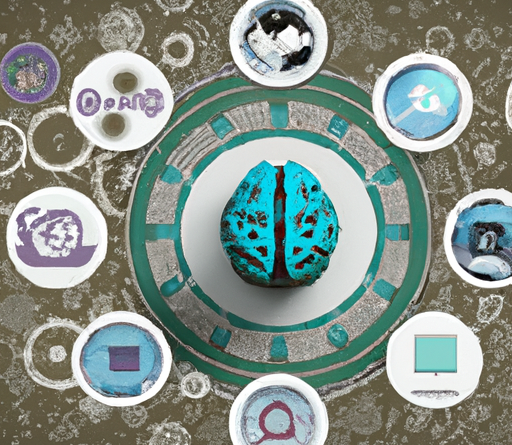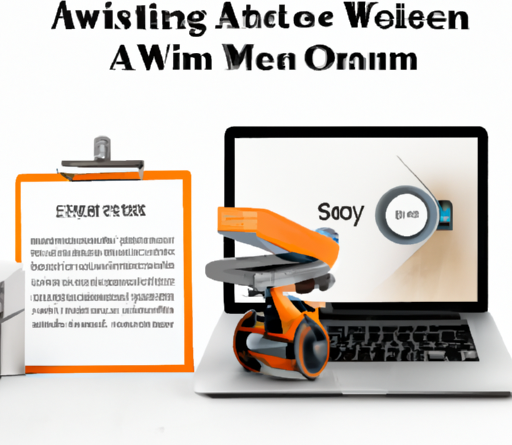
Have you ever wondered how AI uses data to draft a persuasive sales letter? It’s indeed an intriguing subject! Sophisticated algorithms allow AI to analyze critical data, analyze it, and produce an engaging sales letter that could almost compete with a seasoned copywriter’s work. Stick around, and by the end of this discussion, you’ll have a clearer grasp of this exciting topic.
Firstly, audience segmentation data is of vital importance. Knowing who your target audience is, their demographic information, and their behaviors assists an AI in tailoring a sales letter that resonates deeply with them. These crucial pieces of info inform AI on the proper tone, language, and offerings that will likely capture your audience’s interest.
Secondly, data about the product or service you’re trying to sell is equally important. Each feature, benefit, and unique selling proposition should be well-understood by the AI, along with information on how these benefits solve the customers’ problems. In this way, the AI can highlight these points convincingly in the sales letter, stirring your reader’s curiosity and building a compelling case for your offering.
In addition, data from your previous marketing campaigns and sales letters could be beneficial for an AI. It can spot patterns and learn what worked and what didn’t, and adjust its strategy accordingly for more effective messaging. To ensure the AI works optimally, constant monitoring, tweaking, and training with relevant data are recommended. Is this intriguing? There’s even more to learn about this fascinating AI technology!
Table of Contents
Understanding Artificial Intelligence in Marketing
Artificial intelligence (AI) has become an integral part of the business world in recent years, making a significant impact in various fields, including marketing.
Evolution of AI in Marketing
AI’s involvement in marketing dates back to the advent of advanced analytics and automated systems. Marketers saw an immense potential in the technology to augment their strategies, and focused on making data-driven decisions for better campaign outcomes.
Importance of AI in Writing Compelling Sales Letters
AI plays a significant role in crafting sales letters nowadays. It’s capable of analyzing databases, detecting patterns, and providing insights on target audiences. This information allows marketers to create sales letters that resonate with potential clients.
Limitations and Potential of AI in Creating Sales Content
While AI is powerful, it carries some limitations. For example, it lacks human creativity and emotions. However, its potential in creating sales content cannot be undermined. With the right data, implementing AI software can save time, augment productivity, and increase conversions.
Key Ingredients of a Compelling Sales Letter
What gets a prospective buyer to act? Here lies the secret to writing an effective sales letter.
Understanding the Target Audience
Knowing your audience paves the way for crafting a compelling sales letter. AI can analyze extensive data on customer preferences, behaviors, and demographics to produce relevant content.
Structuring Impactful Sales Content
Excellent sales content should captivate your readers instantly. Proper structuring plays a significant role in organizing ideas to generate more interest and engagement.
Employing Persuasive Language
Persuasive language is a powerful tool to awaken emotions and compel audiences to take favorable actions.
Significance of Personalization in Sales Letters
Personalization is crucial in modern marketing. Tailored content based on individual preferences and behaviors can boost customer engagement and conversion rates.

Data Types that AI Requires for Writing Sales Letters
As mentioned earlier, AI requires a certain type of data to craft compelling sales letters.
Consumer Behavioral Data
AI uses data on consumer buying behavior. It analyses purchasing habits, website visits, shopping cart abandonment rates, and more.
Historic Sales Data
Historical sales data provides insights into what worked and what didn’t in past campaigns, helping to avoid previous pitfalls and optimize future sales strategies.
Demographic Data
Demographic data, like age, gender, location, plays a critical role in crafting targeted sales content.
Product or Service Data
Information about the product or service you are marketing is crucial for producing an effective sales letter.
Competitor Analysis Data
Information about competitors’ strategies and customer reviews help in building effective sales letters.
Role of NLP in AI-Based Sales Letters Composition
Natural language processing (NLP) is a key component of AI in marketing.
Concept of Natural Language Processing (NLP)
NLP is a segment of AI that helps machines to understand, interpret, and communicate in human language.
Influence of NLP in Understanding Customer Requirements
Through NLP, AI can analyze customer language and detect their preferences or needs, which helps in writing compelling sales letters.
Significance of NLP in Generating Personalized Content
NLP can facilitate personalized content generation by understanding individual customer’s language and tailoring the content accordingly.

Impact of Big Data on AI’s Capabilities
Big data has revolutionized the way AI operates.
Integration of Big Data with AI
The integration of Big Data with AI facilitates better prediction, analysis, and decision-making in marketing initiatives.
Enhancement of Predictive Analysis through Big Data
Big data helps AI to make more accurate predictions about consumer behavior and market trends, enhancing the overall effectiveness of sales strategies.
Role of Big Data in Enhancing Customer Engagement
Tapping into big data, AI can measure customer engagement levels and optimize sales content accordingly.
Role of Machine Learning in Composing Sales Letters
Machine learning, a subset of AI, plays an indispensable role in writing sales letters.
Understanding Machine Learning Technology
Machine learning enables machines to learn from past data and improve their performance without being explicitly programmed.
Importance of Machine Learning in Analyzing Customer Behavior
Machine learning can analyze customer behavior patterns, enabling marketers to craft more effective sales letters.
Machine Learning in Automating Sales Letters Generation
Machine learning algorithms can automate sales letter creation, making it faster and more efficient.
Implementation of AI Tools for Sales Letters
Using AI tools for crafting sales letters can be beneficial in several ways.
Effective AI Tools for Writing Sales Letters
There are several AI tools available such as Phrasee or Atomic Reach that can aid in effective sales letter composition.
Steps in Executing AI Tools
Identify your goals, select a suitable AI tool, provide it with the necessary data, and let the tool craft a compelling sales letter for you.
Practical Implications of AI Tools in Sales Letters
AI tools, when accurately implemented, can produce engaging sales letters, saving your time, increasing your productivity, and ultimately boosting your ROI.
Case Studies of Successful AI Implementation in Sales Letters
Success Stories of AI in Generating Sales Letters
Many organizations have witnessed a substantial improvement in their sales metrics after implementing AI in their sales letters.
Key Learnings from Successful AI Implementation
An important takeaway is that AI, when backed by the right data and implemented correctly, can augment sales significantly.
Impact of These Case Studies for Future AI Adoption
These success stories are encouraging more businesses to consider AI adoption for their sales strategies.
Challenges of AI in Composing Sales Letters
Although AI is beneficial, it comes with its set of challenges.
Identifying Potential Setbacks of AI in Sales
It is vital to recognize potential setbacks such as data privacy issues, lack of human touch, and model inaccuracy.
Addressing Challenges in AI Adoption
Businesses need to address these challenges by ensuring data security, combining AI with human intelligence, and continuously improving the AI models.
Risk Mitigation Strategies for AI Implementation in Sales
Regular audits of AI systems, maintaining robust cybersecurity measures, and proper staff training can help mitigate these risks.
Conclusion
In conclusion, the potential of AI in composing effective sales letters is huge, backed by the right data. Not only does it streamline the process, but it also ensures that your sales content is data-driven and personalized, resonating more effectively with your target audience. The future of AI in sales and marketing indeed seems promising and is ripe with opportunities for those willing to adapt and innovate.








